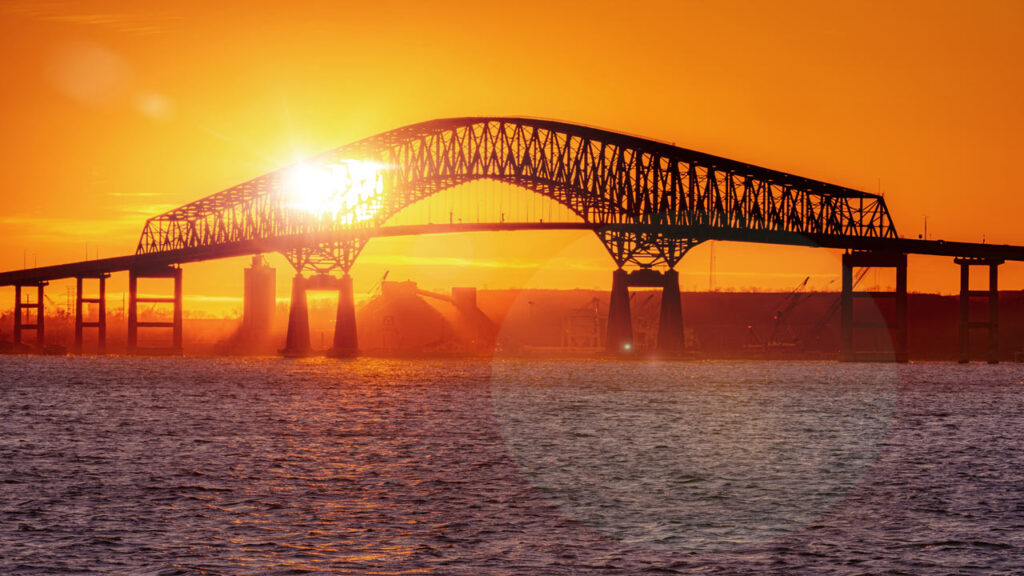by Peter Schiff, Schiff Gold:

While the total annihilation of the Francis Scott Key Bridge in Baltimore probably isn’t a “Black Swan” big enough to trigger a global collapse, it adds potent fuel to several fires in an already fragile global economy.
Broad expectations are for most of the economic fallout to remain local to the surrounding area and Mid-Atlantic states, with Maryland alone estimated to lose $1 billion in value from the disaster. Most economists don’t expect national GDP to take any significant hit, despite the local challenges — but as Maryland’s Senate President Bill Ferguson posted to X after the crash of the Dali:
TRUTH LIVES on at https://sgtreport.tv/
Over 15,000 in the Balt region rely on daily operations at Port of Baltimore to put food on the table.
Today, with Del. @LukeClippinger and colleagues representing Port, we are drafting an emergency bill to provide for income replacement for workers impacted by this travesty.
— Bill Ferguson (@SenBillFerg) March 27, 2024
Still, a domino effect across the broader economy isn’t out of the question. After the disaster, Maryland Senator Chris Van Hollen warned the nation:
“There’s no doubt that this will have a significant impact on port operations and have ripple impacts around the country.”
First, there are the supply chain challenges. With Covid supply chain fiascoes still relatively fresh in the national and global memory, a total closure of the Port of Baltimore means that around $80 billion in foreign cargo will have to go elsewhere. Among that cargo includes imported cars, which could push prices up in an already-frothy market.
Automakers on top of the list that will now need to find a different point of entry include Mazda, Mercedes-Benz, Subaru, and Mitsubishi. Here’s the list from Michael McDonough, Chief Economist of Financial Products at Bloomberg LP:




